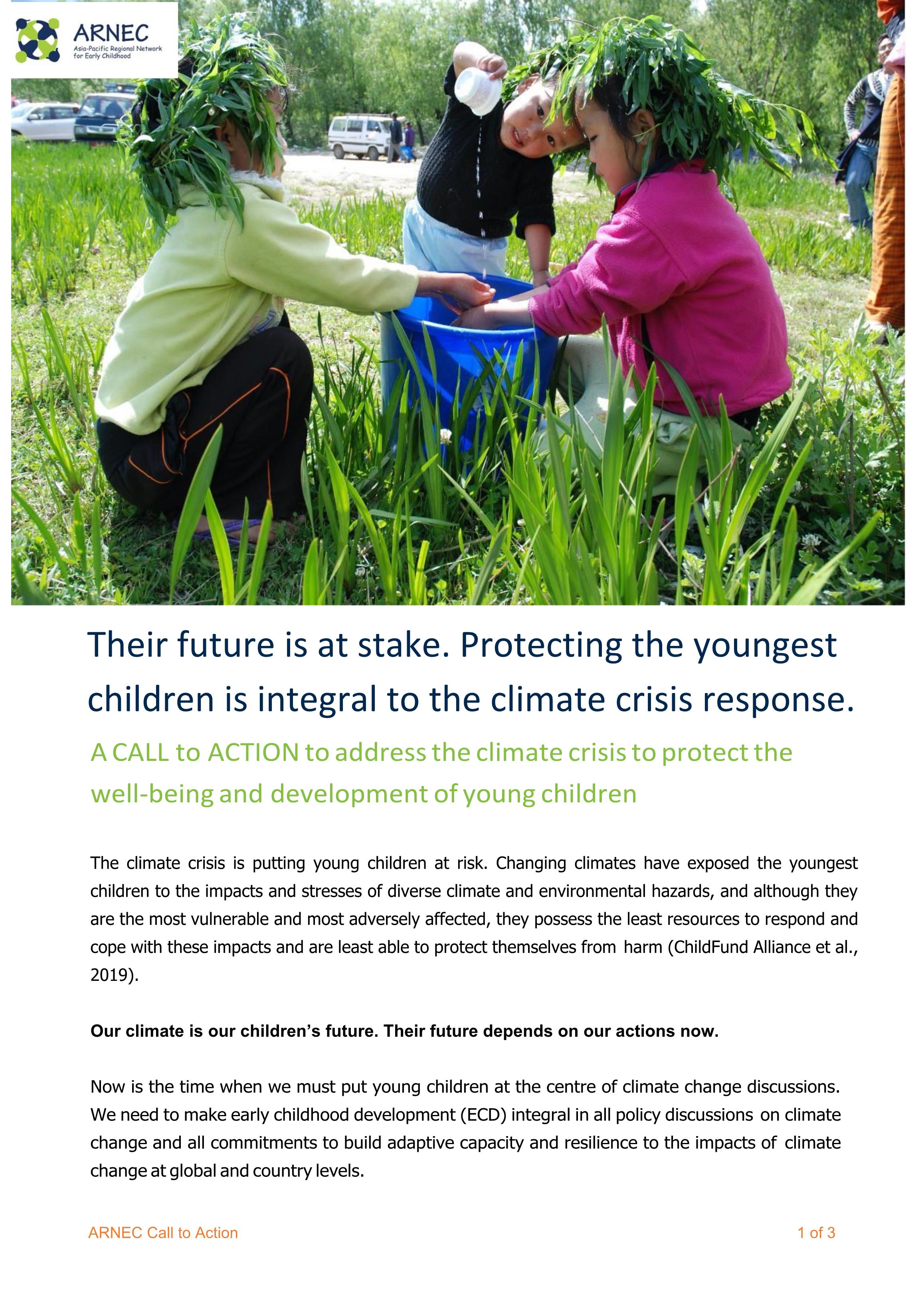ARNEC: Regional Call to Action
A CALL to ACTION to address the climate crisis to protect the well-being and development of young children.
On 9th August 2021, the world’s leading authority on climate science, the Intergovernmental Panel on Climate Change (IPCC) released Climate Change 2021: The Physical Science Basis, which is the most comprehensive assessment to date of how humans are propelling unprecedented change to our rapidly-warming earth. In summary, the IPCC argues that ‘Climate change is widespread, rapid, and intensifying triggered by greenhouse gas emissions, and the impacts are increasingly and globally catastrophic.
Changing climates have exposed the youngest children to the impacts and stresses of diverse climate and environmental hazards, and although they are the most vulnerable and most adversely affected, they possess the least resources to respond and cope with these impacts and are least able to protect themselves from harm (ChildFund Alliance et al., 2019).
Our climate is our children’s future. Their future depends on our actions now. We must put young children at the centre of climate change discussions. We need to make early childhood development (ECD) integral in all policy discussions on climate change and all commitments to build adaptive capacity and resilience to the impacts of climate change at global and country levels.
We stand with the youngest children and urge for their voices to be heard.
In the lead up to the global Climate Change Conference of the Parties (COP26) on 31 October – 12 November 2021 to accelerate action towards the goals of the Paris Agreement and the UN Framework Convention on Climate Change, we call on all to commit to bold, sustainable, and measurable actions at the global and country levels to lessen global warming, reduce the impacts of climate change, and secure a healthy and livable planet. For the protection and well-being of young children. We need to act now to realise the youngest children's rights to survive and thrive and to defend them against the climate crisis that has so unfairly been handed down to them.
Join the Asia-Pacific Regional Network for Early Childhood (ARNEC) and the global movement for young children as we assert our statement on behalf of the young children in the region and the world. Their future is at stake. Protecting the youngest children is integral to the climate crisis response.
We call for the following actions:
1. Providing adequate and predictable investments in nurturing care and wellbeing: good health and nutrition, early learning opportunities, responsive care, and security and protection for young children.
2. Ensuring the ability of ECD programs and services to build resilience and adaptability capacity in support of young children and their families in the context of climate change.
3. Ensuring that climate-sensitive policies and national adaptation plans include a focus on the youngest children.
4. Driving local solutions by empowering civil society to implement locally-led and child-sensitive actions on climate change.
5. Addressing reversals in the SDGs because of the impacts of COVID-19 pandemic, especially in ECD, education, and WASH, among others.
6. Prioritising equity issues in ECD recovery plans and programs so that the most vulnerable young children are not made more vulnerable due to the impacts of climate change.
7. Bridging efforts between scientists, policy makers, climate change advocates and ECD practitioners and advocates to ensure that public investments and decisions around climate change are evidence-based in support of young children and ECD.
Type of document : Annual Reports
Country : Region
Year of publication : 2021
